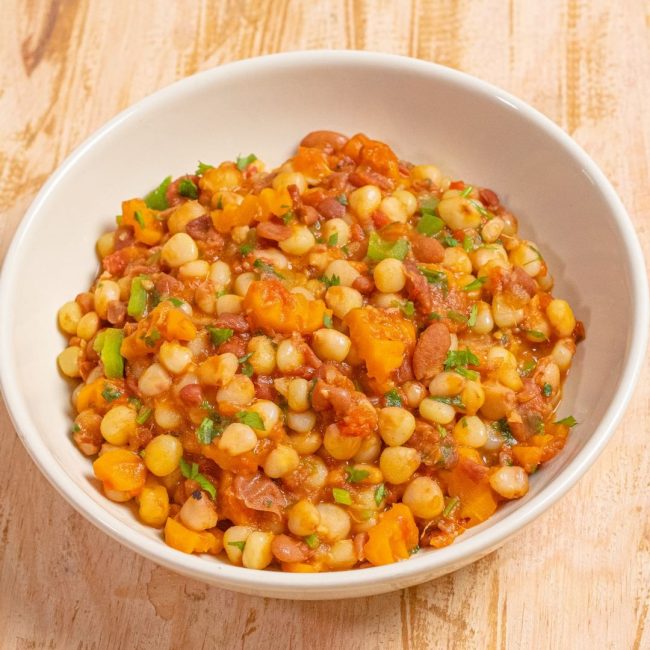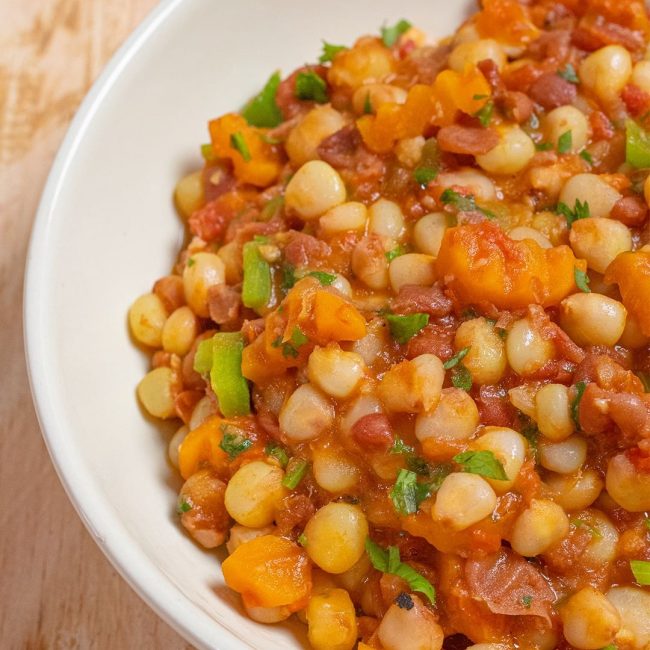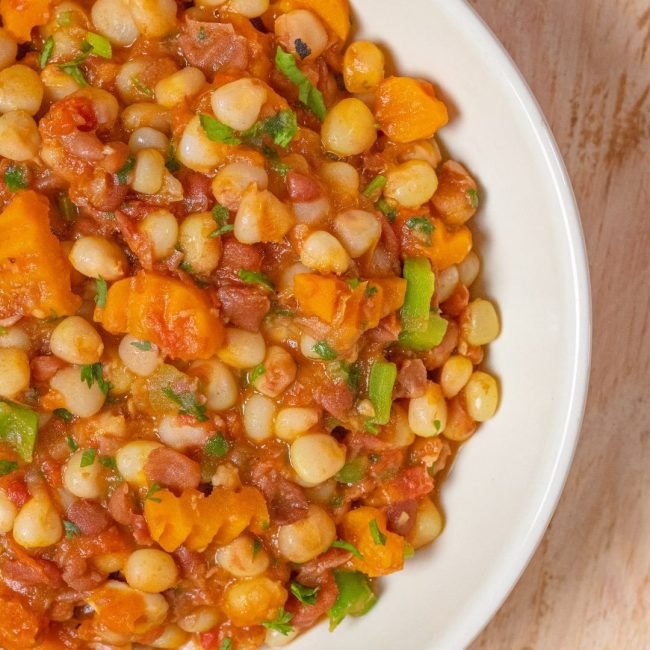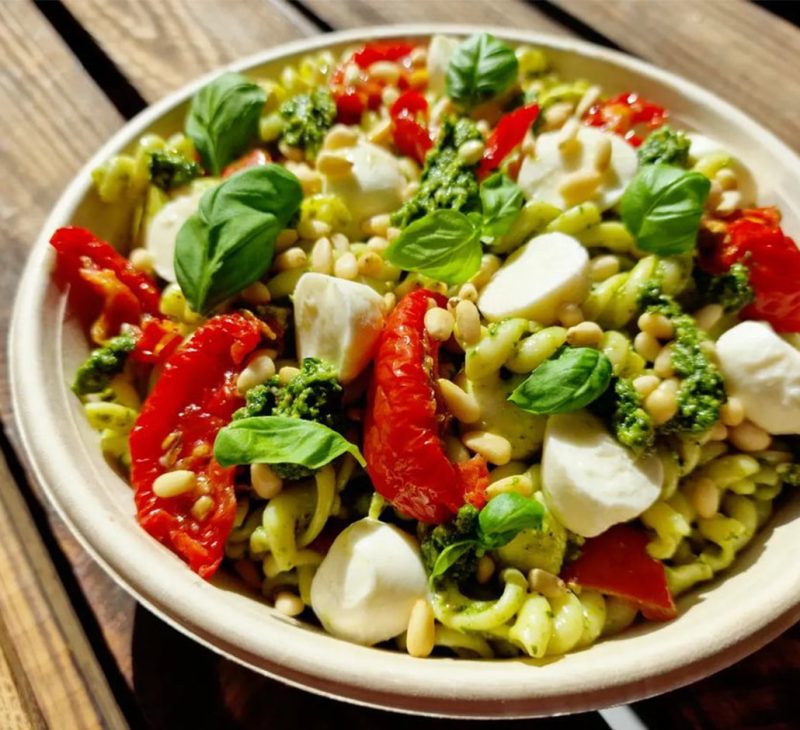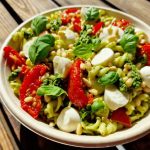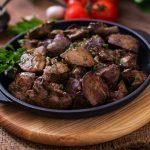Githeri
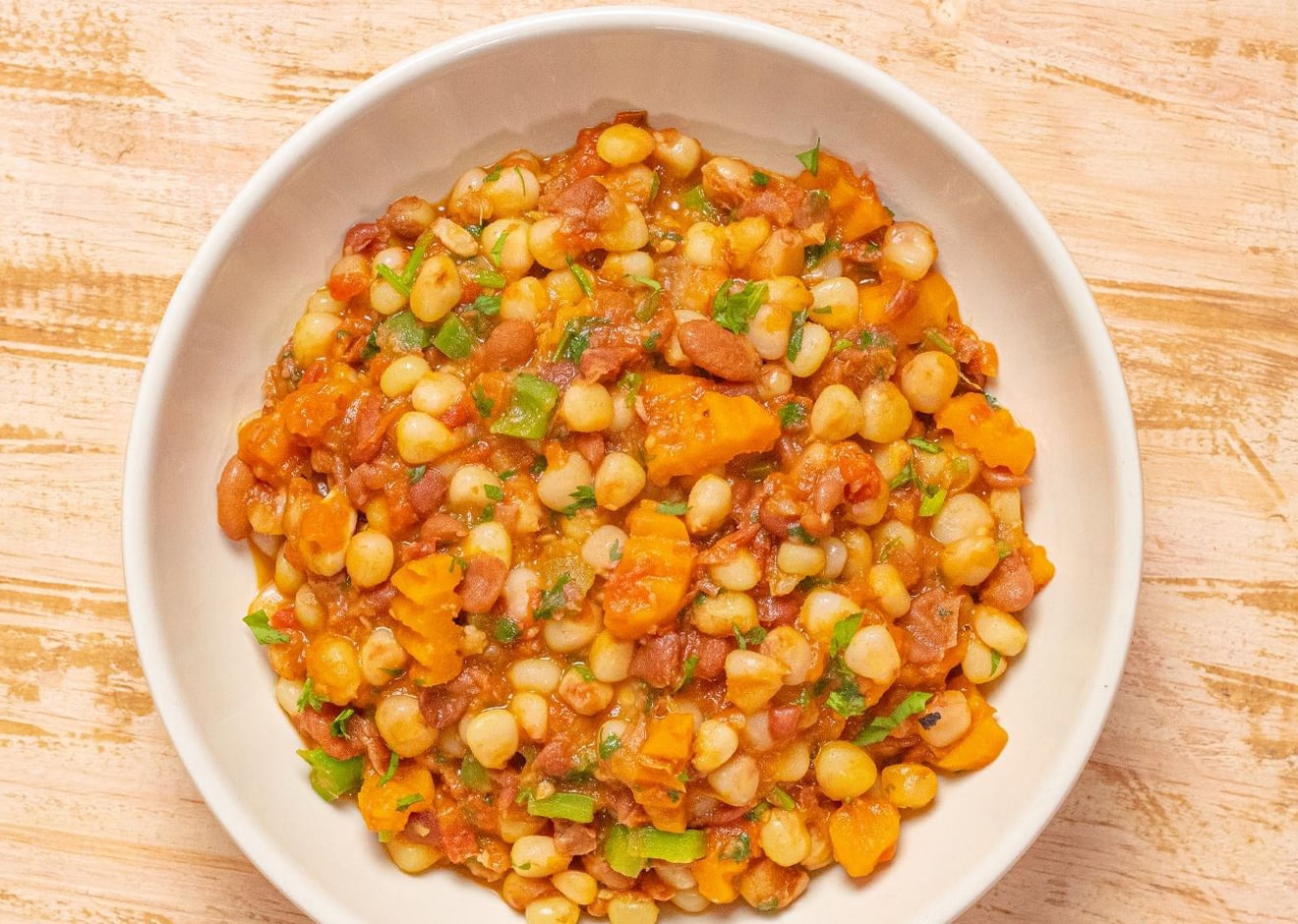
Serving
Time to be Ready
Difficulty
- 2 cupsDried Maize (Corn)
- 2 cupsDried Beans (such as kidney beans or cowpeas)
- 1 pcsOnion (chopped)
- 2 pcsTomatoes (chopped)
- 2 clovesGarlic (minced)
- 1 tbspVegetable Oil
- 1 tspGround Cumin
- 1 tspGround Coriander
- Salt and Pepper (to taste)
- Water, as needed
Scovia Mwikali
- youtube.com/@InfoodsSpecials
- instagram.com/infoods_specials
- 1Soak the dried maize and beans separately in water overnight, or for at least 8 hours.
- 2Drain and rinse the soaked maize and beans.
- 3In a large pot, heat the vegetable oil over medium heat. Add the chopped onion and minced garlic, and sauté until softened and fragrant, about 3-4 minutes.
- 4Add the chopped tomatoes to the pot and cook until they begin to break down and release their juices, about 5 minutes.
- 5Stir in the soaked maize and beans, along with the ground cumin and coriander. Season with salt and pepper to taste.
- 6Add enough water to cover the maize and beans by about 2 inches.
- 7Bring the mixture to a boil, then reduce the heat to low and simmer, partially covered, for 1 hour to 1 hour 30 minutes, or until the maize and beans are tender.
- 8Stir the githeri occasionally during cooking, adding more water if necessary to prevent it from sticking to the bottom of the pot.
- 9Once the maize and beans are tender and the mixture has thickened to your desired consistency, remove the pot from the heat.
- 10Serve the githeri hot, either as a standalone dish or accompanied by your favorite side dishes, such as chapati or ugali.
- 11Enjoy this hearty and nutritious Kenyan staple as a comforting main course that's perfect for sharing with family and friends!
Try this delicious Githeri recipe to take your taste buds on a trip to East Africa! Githeri is a robust, healthful dish with roots in Kenyan cuisine that highlights the bright flavors of regional ingredients. Come along as we examine the history of this cherished mainstay and discover how to make it at home.
Githeri is highly valued in Kenyan cooking due to its ease of preparation, adaptability, and nutritional value. Githeri is essentially a filling combination of boiling maize (corn) and beans, frequently served with extra veggies including potatoes, carrots, and greens. This modest concoction gives a nourishing powerhouse rich in fiber, protein, and important vitamins in addition to being a hearty and satisfying supper.
The versatility of Githeri is one of its best features. The recipe can be altered to accommodate different tastes and preferences, even if the basic ingredients stay the same. Adding coconut milk for creaminess, adding more flavorings like coriander and cumin, or adding fresh herbs and chili peppers for a hint of fire are a few options. Githeri is a versatile meal that can be served as an appetizer or as a side dish with fish or meat that has been grilled.
However, is a representation of Kenyan culture and heritage and is more than just a dish. Githeri, which is traditionally made in big batches for social events and festivities, unites people and promotes a sense of belonging. Its origins can be found among the native tribes of Kenya, where it was a staple diet passed down orally through years of customs and treasured family recipes.
Apart from its cultural importance, Githeri has many health advantages. For vegetarians and vegans, the combination of maize and beans offers a complete protein source. In addition to supporting blood sugar regulation and digestive health, the high fiber content and variety of vitamins and minerals also assist general wellbeing. Githeri, with its healthful ingredients and filling qualities, is a monument to the wisdom of traditional African cooking.
This recipe embodies the spirit of Kenyan hospitality, tradition, and nourishment. Whether enjoyed as a comforting meal at home or shared with loved ones at a festive gathering, Githeri delights the senses and nourishes the body and soul. So why not embrace the rich flavors and cultural heritage of East Africa with our authentic Githeri recipe? Gather your ingredients, simmer a pot of maize and beans, and savor the taste of tradition with every delicious bite.
With sun-dried tomatoes, mozzarella, pine nuts, and basil, our Pesto Pasta Salad will tantalize your taste senses.
This recipe for Crispy Fried Chicken will add flair to your dinner table; it's a filling and savory dish that works well for any meal.
